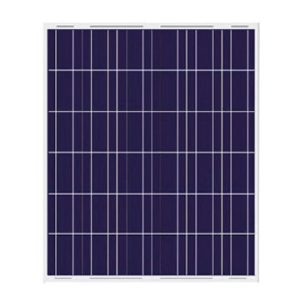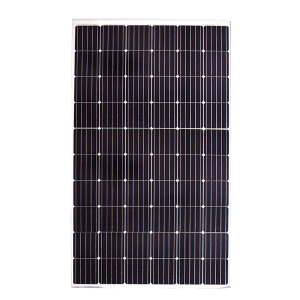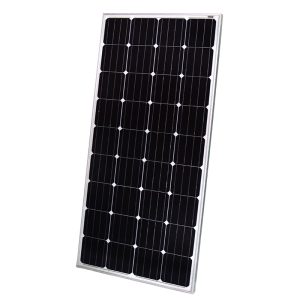Installing a 200 watt solar panel kit provides a clean, renewable way to harness the sun’s energy for powering your RV’s electrical system. With a properly designed and mounted system, you can reduce reliance on shore power or a generator. This lets you stay off-grid for longer periods while boondocking or dry camping. However, to get the best performance and longevity from your investment, it’s important to follow key best practices when selecting equipment and siting, installing and caring for your new 200W RV solar system.
Optimal Placement and Mounting
Choosing the right location to mount your 200 watt solar panels is one of the most critical design decisions. You want to maximize sun exposure throughout the day, especially during peak daylight hours. The roof of your RV provides an excellent platform already angled toward the sky. For optimal solar collection, panels should tilt directly towards the sun, facing true south rather than magnetic south. This orientation maximizes power generation.
The roof of your RV likely has multiple flat or gently curved sections interrupted by vents, skylights and AC units. Carefully assess each area to select a spot that receives sunlight for the greatest number of daylight hours. Consider the path of the sun throughout seasons too. Avoid sections prone to shading from trees, awnings or other RVs.
Once you’ve identified the best roof location, proper mounting is critical. Most RVs have aluminum or fiberglass roofing material over wood struts or foam insulation. Attaching solar panels directly to the roof surface using adhesive is not recommended. The better approach is securely mounting sturdy brackets to the roof struts or frame underneath using bolts or lag screws. The brackets then support the weight of the panels and protect against wind uplift. Leave a small gap between panel and roof to allow airflow and cooling.
Carefully Select System Components
In addition to efficient solar modules producing at least 200 watts, your RV power system also relies on other key components like:
- Charge controller: Regulates power flowing from panels to batteries to prevent overcharging.
- Wiring: Transfers current safely from panels to controller, batteries and inverter.
- Batteries: Store energy for use when solar panels aren’t actively charging.
- Inverter: Converts DC output from batteries to standard AC power.
When pairing a 200W solar panel kit with these components, be sure to choose equipment designed and rated specifically for RV applications. The units must be durable enough to handle vibration and temperature extremes while traveling. Verify solar modules and inverters are from reputable brands that adhere to industry standards for quality and efficiency ratings.
Properly gauge all connecting wires for the system’s expected power transfer distance and loads. Wires that are too small can overheat, reducing output or even causing fires. Use protective conduit or shielding where wires are exposed outside or pass through the roof. Include a solar charge controller that diverts excess energy as needed instead of overcharging your batteries.
Professional Installation for Best Performance
While portable suitcase solar panels simply set outside when needed require little setup, installing panels semi-permanently on your RV’s roof takes more skill and effort. To guarantee proper mounting, weather sealing and wiring for optimal safety and efficiency, consider having your 200W system professionally installed by qualified solar technicians.
The benefits of professional RV solar panel installation include:
- Compliance with codes: Solar installers follow local building codes and manufacturer specifications.
- Weatherproofing: Technicians properly seal roof penetrations to prevent leaks.
- Connectivity: Electrical connections are solid and wiring polarity is meticulously checked.
- Equipment expertise: Companies have the right tools and experience for the job.
DIY installations can work but require following meticulous protocols. Safety remains paramount when navigating roofs and connecting into electrical systems. Without proper sealing, water ingress can cause major RV damage over time. Rushed or improper wiring also poses fire and electrocution hazards.
Consult local solar experts if you lack the skills, tools or confidence to correctly install a 200W system yourself. Quality installers also help assess your specific power needs and design a custom system to satisfy them.
Regular Inspections Prolong System Lifespan
Once your panels are providing renewable energy, be sure to schedule regular system checkups and maintenance. While solar panels and supporting components are built to withstand life on the move, improper care shortens their lifespan. Best practice is to visually inspect all wiring connections, controllers, batteries and panels at least monthly. Look for:
- Loose, damaged or corroded wiring connections
- Cracked panels or broken mounting brackets
- LED indicator lights on controllers or inverters signaling errors
- Rodent or insect damage to wiring insulation
- Debris accumulation on panels blocking sunlight
Carefully removing dust, dirt and grime from solar panels can also boost efficiency and output substantially. Use a soft brush, sponge or compressed air to gently clean panels. Avoid abrasive brushes or cleaners which can scratch and reduce performance.
Monitoring system data like charging efficiency and battery voltages gives insight into overall operation too. Sudden drops in output or battery charge can indicate partial shading, debris buildup or actual equipment faults needing repair.
Having an RV technician inspect your solar installation annually gives peace of mind while traveling. They may uncover and correct small issues before they become larger problems. Technicians can also ensure your system is optimized as possible.
Investing in a quality 200W solar panel system lets you take advantage of free, renewable solar energy for powering your RV. But choosing reputable equipment, proper siting and installation, and regular maintenance helps ensure your solar system performs reliably for years of off-grid adventuring to come. Contact us today to discuss your needs or get a quote for solar panels and components for your DIY or professional installer project.



